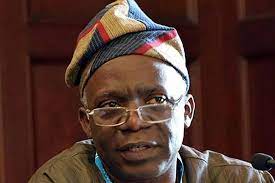Human rights lawyer Femi Falana has criticised President Bola Tinubu’s economic reforms, describing the administration’s “harsh neoliberal policies” as responsible for the collapse of Nigeria’s middle class and worsening living standards for millions.
Falana pointed out that although the President recently acknowledged the hardship citizens face, his policies have only deepened poverty.
“I heard the President asking APC governors to ‘wet the ground’ more, but from the perspective of the masses, life is becoming increasingly difficult due to the severe economic crisis. The President himself has admitted that Nigerians across the country are complaining,” Falana said on Monday during Politics Today on Channels Television.
He blamed the worsening conditions on the government’s uncritical adoption of neoliberal economic policies.
“The rigid implementation of neoliberal policies has pushed poverty to alarming levels. There is an urgent need to review these policies,” he said.
Falana, a Senior Advocate of Nigeria, also condemned the government’s privatisation agenda, arguing it contradicts the fight against income inequality.
“You cannot address income inequality while handing over public resources to a privileged few in the name of privatisation,” he asserted.
He lamented that most Nigerians now struggle to afford three meals a day, and that the middle class has effectively been wiped out under current policies.
“The government must return to the drawing board and re-evaluate all policies—especially those championed by the IMF and World Bank—for the sake of Nigerians. It is in the administration’s own interest to do so quickly,” he added.
Since assuming office in May 2023, President Tinubu has introduced wide-ranging reforms, including the liberalisation of the naira and the removal of fuel subsidies. While aimed at stabilising the economy, these measures have triggered a deep cost-of-living crisis marked by surging inflation and growing poverty.
Fuel subsidy removal, in particular, has caused a steep rise in petrol prices, which in turn has led to increased transport costs, higher food prices, and general inflation.
Falana emphasised the need to urgently implement and legally enforce social welfare programmes to alleviate widespread suffering.
“To combat poverty, we must begin by enacting and enforcing welfare laws,” he stated, referencing the National Social Investment Programme (NSIP), which was established under the Social Investment Programme Agency Act in 2023.
The NSIP comprises several federal schemes designed to reduce poverty, including N-Power (for youth employment), the Government Enterprise and Empowerment Programme (GEEP), a school feeding initiative, and conditional cash transfers to vulnerable households.
Falana urged President Tinubu to encourage state governors to codify such social investment initiatives into law, ensuring they are implemented consistently and effectively.



